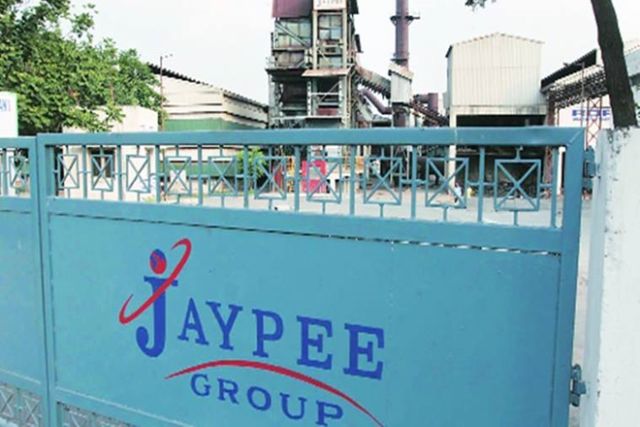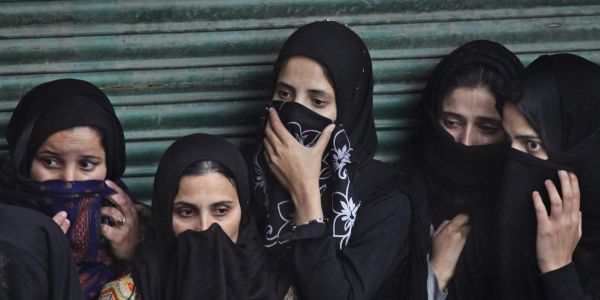
by Editor | May 25, 2021 | News, Politics
 New Delhi : The Supreme Court on Tuesday permitted the NIA to continue its probe into any criminality in the marriage of Hadiya, a Hindu woman from Kerala who converted to Islam, with Shafin Jahan but not intrude into their marriage.
New Delhi : The Supreme Court on Tuesday permitted the NIA to continue its probe into any criminality in the marriage of Hadiya, a Hindu woman from Kerala who converted to Islam, with Shafin Jahan but not intrude into their marriage.
Observing that the probe into the criminal aspect has to be segregated from the marriage, a bench of Chief Justice Dipak Misra, Justice A.M. Khanwilkar and Justice D.Y. Chandrachud said “…otherwise we will be creating a bad precedent in law”.
“We can’t go into the marriage. Whether the person she is married to is good human being or a bad human” — the bench observed, noting that Hadiya is 24 years old and has made an independent decision and choice to marry. Hadiya was known as Akhila Ashokan before she converted.
Making it clear that the National Investigation Agency (NIA) has to stay away from the marriage of Hadiya with Shafin, the court observed that the agency could probe into “all other aspects except her marriage”.
Hadiya was set free and allowed to pursue her studies in the last hearing of the matter on November 27 as she had told the court that she wanted to pursue her internship in the Sivaraj Homeopathic College and Research Institute in Salem in Tamil Nadu.
Hadiya had told the court that she wanted “freedom and release”. She was put in the custody of her parents by a Kerala High Court order.
Having told the NIA not to intrude into their marriage, the court said that the only question it was concerned with is whether the High Court could have annulled the marriage of Hadiya with Shafin in the wake of a habeas corpus petition, a concern the court had expressed in earlier hearings also.
The court also made Hadiya a party in the matter, which will now be heard on February 22 when the apex court will examine the validity of the High Court’s order that annulled the marriage.
—IANS

by Editor | May 25, 2021 | News, Politics
 New Delhi : The Supreme Court on Friday issued notice on a plea seeking a country-wide ban on the manufacture, sale and bursting of firecrackers, including burning of stubble by agriculturists.
New Delhi : The Supreme Court on Friday issued notice on a plea seeking a country-wide ban on the manufacture, sale and bursting of firecrackers, including burning of stubble by agriculturists.
A bench of Justice A.K. Sikri and Justice Ashok Bhushan gave the Centre four weeks time to respond to the plea by a child, Arjun Gopal, represented by lawyer Gopal Shankarnarayan.
The court has been moved by other petitioners as well. They are seeking a ban on the manufacture, sale and bursting of firecrackers, as it was contributing to an already alarming state of air pollution.
—IANS

by Editor | May 25, 2021 | News
 New Delhi : The Supreme Court on Monday set Hadiya, a 24-year-old Hindu woman from Kerala who converted to Islam, free from the custody of her parents and directed that she be allowed to complete her studies at a Salem homeopathy college.
New Delhi : The Supreme Court on Monday set Hadiya, a 24-year-old Hindu woman from Kerala who converted to Islam, free from the custody of her parents and directed that she be allowed to complete her studies at a Salem homeopathy college.
Allowing Hadiya to walk free, the bench headed by Chief Justice of India Dipak Misra directed the Salem college to allow her to complete her house surgeon internship.
The court directed that she should be allowed to meet people as per the medical college hostel rules.
The court order came after the bench, also comprising Justice A.M. Khanwilkar and Justice D.Y. Chandrachud, interacted with her for about 25 minutes during which she expressed her desire to complete her house surgeon internship and pursuer her career as a homeopathic doctor.
The court directed the Kerala government to ensure that she safely reaches her medical college in Salem in the custody of plainclothes police personnel.
Hadiya was asked to be present in the court on Monday to ascertain her views on her marriage to a Muslim man, Shafin Jahan. Her parents have alleged it is a case of “forced conversion”.
Her father, Asokan, has alleged that she was a pawn in the larger scheme of indoctrinating and recruiting of ISIS recruits. Earlier, the Kerala High Court had nullified her marriage to Jahan and she was given in the custody of her father.
Shafin Jahan had challenged the Kerala High Court order of May nullifying his marriage with Hadiya and sought recall of the court order asking NIA to investigate the conversion of Hadiya to Islam and her marriage.
—IANS

by Editor | May 25, 2021 | News, Politics
 New Delhi : The Supreme Court on Monday told Jaypee Associates to keep Rs 2,000 crore ready before its next hearing as it refused to permit it a part deposit of Rs 400 crore by Friday.
New Delhi : The Supreme Court on Monday told Jaypee Associates to keep Rs 2,000 crore ready before its next hearing as it refused to permit it a part deposit of Rs 400 crore by Friday.
A bench of Chief Justice Dipak Misra, Justice A.M. Khanwilkar and Justice D.Y. Chandracud asked the real estate major to keep ready the sizable amount as company counsel Anupam Lal Das said that they have Rs 50 crore “ready in hand” and will arrange for another Rs 350 crore by Friday.
He said that the Jaypee Associates will be depositing Rs 400 crore every month starting with January 2018.
The top court had directed the real estate major to deposit Rs 2,000 crore to protect the interest of the home buyers of Jaypee Infratech – it’s wholly owned company – restructuring on the orders of the Allahabad bench of the NCLT.
The IDBI had moved the National Company Law Tribunal (NCLT) for default of payment against the loan taken by it.
—IANS

by Editor | May 25, 2021 | News, Politics
 New Delhi : The Supreme Court is likely to pronounce on Tuesday its verdict on the constitutional validity of triple talaq – a practice already described by All India Muslim Personal Law Board (AIMPLB) as “horrendous”, “sinful” and “undesirable” which had no sanction of Holy Quran and Shariat.
New Delhi : The Supreme Court is likely to pronounce on Tuesday its verdict on the constitutional validity of triple talaq – a practice already described by All India Muslim Personal Law Board (AIMPLB) as “horrendous”, “sinful” and “undesirable” which had no sanction of Holy Quran and Shariat.
The five-judge bench of Chief Justice Jagdish Singh Khehar, Justice Kurian Joseph, Justice Rohinton Fali Nariman, Justice Uday Umesh Lalit and Justice S. Abdul Nazeer will pronounce verdict on the validity of the contentious custom which is in practice for last 1,400 years but illegal in many Islamic countries.
The hearing, spread over five days from May 12 to May 18, was rooted in the apex court’s October 16, 2015 order directing the separate listing of a PIL addressing the question of the rights of Muslim women.
At the outset of the hearing, the court had made it clear that it would not examine the validity of anything that formed an intrinsic part of Islamic religious practices – thereby ousting any submissions on polygamy.
The court had framed three questions to be addressed by all the parties that included whether triple talaq was fundamental to Islam, whether it was sacrosanct to Islam and whether the practice was an enforceable fundamental right.
In the course of the hearing, the AIMPLB issued an advisory to telling the qazis to give an option to Muslim women to opt out of instant triple talaq before giving consent for ‘nikah’.
In their affidavit before the court, they said that qazis all over the country have been instructed that they would while performing nikah, record in the Nikahnama, that the bride has opted out of triple talaq in one sitting.
Senior counsel Salman Khurshid, who was assisting the court in the matter, had said that “What was sinful in theology, can’t be good in law”.
“It (triple talaq) is not only not an essential part of Muslim religion, it is not a part of religion at all. On the contrary it is depreciated by Islam,” he said.
However, the court was not appreciative of the government position that the top court should first pronounce on the constitutional validity of the triple talaq and other forms of talaq, only then it would bring a law.
“We may or may not (decide the issue), but you do,” Chief Justice Khehar had said when the Central government told the court that it should step in a situation where there is no legislation.
While founding its case on gender equality, the government had linked the issue of triple talaq with that of constitutional morality, but the court termed its position a “whitewash”.
As the Centre sought to flag the issue of gender equality of Muslim women vis-a-vis women in other religions and in Islamic countries, the AIMPLB asked it to bring a law taking recourse to Article 25 (2)(b) of the Constitution that permits enactment of law invoking social reforms.
However, AIMPLB had cautioned the constitution bench that “testing the validity of customs and practices was a slippery slope”.
—IANS

 New Delhi : The Supreme Court on Tuesday permitted the NIA to continue its probe into any criminality in the marriage of Hadiya, a Hindu woman from Kerala who converted to Islam, with Shafin Jahan but not intrude into their marriage.
New Delhi : The Supreme Court on Tuesday permitted the NIA to continue its probe into any criminality in the marriage of Hadiya, a Hindu woman from Kerala who converted to Islam, with Shafin Jahan but not intrude into their marriage.


